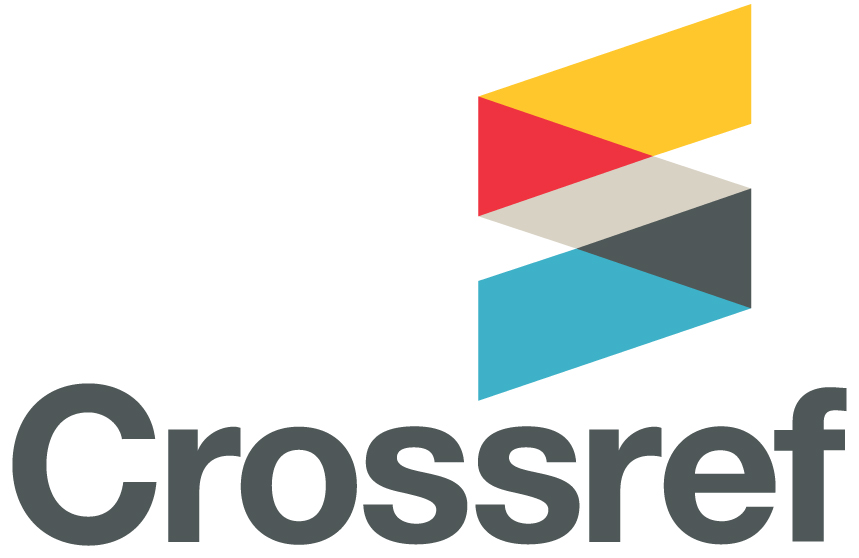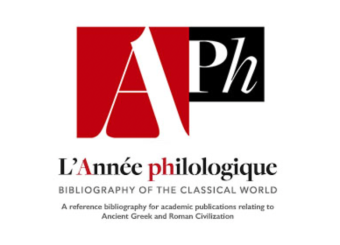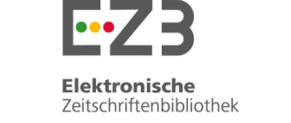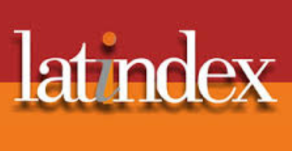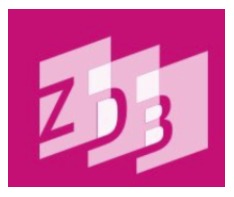The societates publicanorum in the military supply: economic and legal considerations of a new war logistics (s.III-I B.C.)
DOI:
https://doi.org/10.53382/issn.0719-9902.21Keywords:
professional army, economic inflation, monetary minting, Societates Publicanorum, Mercatores belli, war logistics, supplyAbstract
The conquests carried out by Rome irreversibly transformed the founding social structures. The new prevailing mentality promoted an avant-garde economic dynamic that revolutionized the monetary finance, the situation of the army, the legal thinking and the contractual relationship of the State with private parties. The Societates Publicanorum appear capable of supporting the State in many of its needs, such as supplying the troops with all kinds of inputs, an activity that was supported and regulated by the jurisprudence and that brought huge profits to the private coffers. The Senate and its military logistics had fundamental support from the publicans in times of economic difficulty.
References
Aubert, J. 1994: Business managers in ancient Rome. A social and economic study of institores, 200 B.C.-A.D. 250, Leiden.
Badian, E. 1972: Publicans and Sinners. Private enterprise in the services of the Roman Republic, Oxford.
Bona, F. 1992: «Le Societates Publicanorum e le società questuarie nella tarda Repubblica», Imprenditorialità e diritto nell’esperienza storica, Palermo, pp. 13-69.
Brizzi, G. 1997: Storia di Roma. 1. Dalle origini ad Azio, Bolonia.
Burnett, A. 1987: Coinage in the roman world, Londres.
Cassola, F. 1962: I gruppi politici romani nel III secolo a.C., Trieste.
Cerami-Pietro-Petrucci 1981: Lezioni di diritto commerciale romano, Turín.
Cerami, P.,-Di Porto, A.-Petrucci, A. 2004: Diritto commerciale romano profilo storico, Turín.
Cimma, M.R. 1981: Ricerche sulle società di publicani, Milán.
Clemente, G. 1990: «L’economia imperiale romana», Storia di Roma, Turín, pp. 365-384.
Crawford, M. 1970: «Money and exchange in the Roman World», JRS LX, pp. 40-48.
Crawford, M. 1974: Roman Republican Coinage II, Cambridge.
Desideri, P. 1982: «Tecnologia, economia e società nel mondo romano», Athenaeum 60, III-IV, pp. 554-560.
Di Porto, A. 1984: Impresa collettiva e schiavo manager in Roma antica (II sec. a.C. – II sec. d.C.), Milán.
D’ors, X. 1997: «Las relaciones contractuales con la administración pública a la luz de las leyes municipales en derecho romano», I rapporti contrattuali con la pubblica amministrazione nell’esperienza storico giuridica, Nápoles, pp. 79-111.
Erdkamp, P. 1995: «The corn supply of the roman armies during the third and second century B.C.», Historia XLIV, 2, Stuttgart, pp. 168-191.
Erdkamp, P. 1998: Hunger and the sword. Warfare and food supply in Roman Republican wars (264-30 b.C.), Amsterdam.
Erdkamp, P. 2006: «The transformation of the roman army in the second century B.C.», War and territory in the roman world, BAR International Series, Oxford, pp. 41-51.
Erdkamp, P. 2007: «War and State Formation in the Roman Republic», A Companion to the Roman Army, Oxford, pp. 96-113.
Ferrer-Maestro, J. 2003: «Un caso de crédito privado al Estado romano: la financiación de suministros militares durante la segunda guerra púnica», Klio 85.
Frank, T. 1933: An Economy Survey of Ancient Rome, Baltimore.
Gabba, E. 1949: «Le origini dell’Esercito Professionale in Roma: I Proletari e la Riforma di Mario», Athenaeum XXVII, III-IV, Pavia.
Gabba, E. 1972: «Mario y Silla», ANRW, Berlín-Nueva York.
Gabba, E. 1973: Esercito e Societá nella Tarda Repubblica Romana, Florencia.
Gabba, E. 1975: Le rivolte militari romane, dal IV sec. a.C. ad Augusto, Florencia.
Gabba, E. 1976: Republican Rome the Army and the Allies, Oxford.
Gabba, E. 1977a: «Considerazione sulla scadenza della piccola propietà contadina nell’ Italia centro meridionale del II sec. A.C.», Ktema 2, Strasburgo, pp. 269-284.
Gabba, E. 1977b: «Esercito e fiscalità a Roma in età republicana», Armées et fiscalité dans le monde Antique, París, pp. 13-27.
Gabba, E. 1978: «Aspetti economici e monetari del soldo militare dal II sec. A.C. al II sec. D.C.», Les dévaluations à Rome. Époque républicaine et impériale, Roma, pp. 217-225.
Gabba, E. 1980: «Tecnologia, economia e società nel mondo romano», Actas Congreso de Como, Como.
Gabba, E. 1988: Del buon uso della ricchezza. Saggi di storia economica e sociale del mondo antico, Milán.
Gabba, E., 2000: «Reflexiones antiguas y modernas sobre las actividades comerciales en Roma en los siglos II y I a.C., Sociedad y política en la Roma republicana», Gabba, Emilio-Laffi, Umberto, Pisa, pp. 195-208.
Garnsey, P. - Rathbone, D., 1985: «The background to the grain law of Gaius Gracchus», JRS LXXV, Londres, pp. 20-25.
Garnsey, P. 1988: Famine and food supply in the Graeco-Roman world. Responses to risk and crisis, Cambridge.
Hopkins, K. 1980: «Taxes and trade in the Roman Empire (200 B.C.-400 A.D.)», JRS LXX, pp.101-125.
Harris, W., 2006: «A revisionist view of Roman money», JRS XCVI, Londres, pp.1-24.
Howgego, C., 1992, «The supply and the use of Money in the roman World», JRS LXXXII, pp. 2-15.
Kay, P. 2016: Rome’s Economic Revolution, Oxford University Press, Oxford.
Laffi, U. 2001: Studi di storia romana e di diritto, Roma.
Laffi, U. 2007: Colonie e municipi nello Stato Romano, Roma.
Le Bohec, Y. 1995: Histoire militaire des guerres puniques, Mónaco.
Lo Cascio, E. 2007: L’appovvigionamento dell’esercito Romano: mercato libero o commercio amministrato?, «The impact of the Roman Army (200 BC – AD 476)», pp. 195-206.
Maganzani, L., 2002: «Analisi economica e studio storico del diritto: le Societates Publicanorum rivisitate con gli strumenti concettuali dell’economista», IURA, pp. 216-242.
Mateo, A., 1999: Manceps, Redemptor, Publicanus, Cantabria.
Mazza, M., 1966: Storia e ideologia in Livio per un’analisi storiografica della Praefatio ai Libri Ab Urbe Condita, Catania.
Milan, A., 1993: Le forze armate nella storia di Roma antica, Roma.
Nicolet, C., 1966: L’Ordre Équestre a l’époque Rèpublicaine (312-43 av. J. C.), I, París.
Nicolet, C., 1969: «Armeé et socièté à Roma sous la République», Problèmes de la guerre à Rome, París-La Haya, pp. 117-156.
Nicolet, C., 1974: L’Ordre Équestre a l’Époque Rèpublicaine, vol. II, París.
Nicolet, C. 1984: Strutture dell’Italia Romana (sec.III-I a.C.), Roma.
Nicolet, Claude 1994: «Dìmes de Sicile, d’Asie et d’ailleurs», Le ravitaillement en blé de Rome et des centres urbains des débuts de la République jusqu’au Haut Empire, actas del coloquio internacional, Centre Jean Bérard y l’Ura 994 de CNRS, Nápoles-Roma, pp. 215-217.
Nicolet, C. 2000: Censeurs et publicains, París.
Ñaco del Hoyo, T. 2003: Vectigal incertum, economía de guerra y fiscalidad republicana en el occidente romano: su impacto histórico en el territorio (218-133 a.C.), Oxford.
Ñaco del Hoyo, T. 2001: «Milites in oppidis hibernabant. El hospitium militare invernal en ciudades peregrinas y los abusos de la hospitalidad sub tectis durante la República», Dialogues d’Histoire Ancienne 27, 2, pp. 63-90.
Pendón, E. 2002: Régimen jurídico de la prestación de servicios públicos en derecho romano, Madrid.
Rickman, G. 1980: The corn supply of the ancient Rome, Oxford.
Roth, J. 1999: The Logistic of the Roman Army at War, Leiden.
Roth, J. 2007: «War», The Cambridge History of Greek and Roman Warfare, vol. I, Cambridge, pp. 368-398.
Scarano Ussani, V. 1992: «Gli ‘scherzi’ di Lucio Verazio», ZPE 90, pp. 127-135.
Schiavone, A. 1992: Giuristi e nobili nella Roma repubblicana, Bari.
Tocci, M. 2020: Societates Publicanorum e Societates Vectigales nella Roma Antica. Prime esperienze storiche di amministrazione pubblica indiretta, 2, Milán.
Trisciuoglio, A. 1997: «Sulle sanzioni per l’inadempimiento dell’appaltatores di ultrotributa nella tarda Repubblica e nel Principato», I rapporti contrattuali con la pubblica amministrazione nell’esperienza storico-giuridica, Actas del Congreso, AAVV, Turín, pp. 191-231.
Walbank, F. 1957: A Historical Commentary on Polybius, Oxford.
Downloads
Published
Issue
Section
License
Copyright (c) 2020 Grecorromana. Revista Chilena de Estudios Clásicos

This work is licensed under a Creative Commons Attribution-NonCommercial-NoDerivatives 4.0 International License.




